Results
-
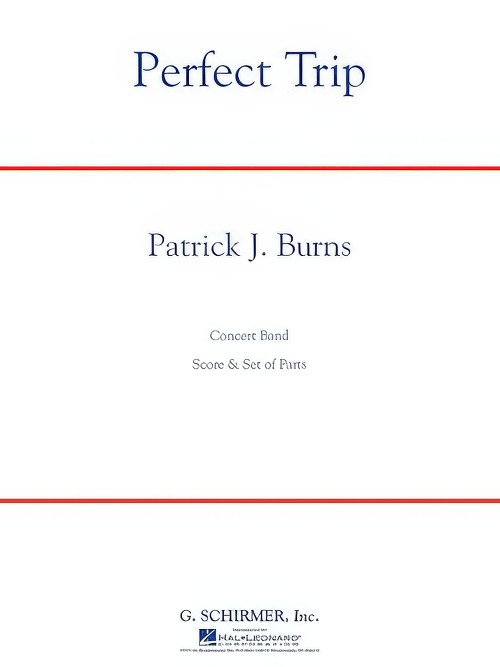 £57.50
£57.50Perfect Trip (Concert Band - Score and Parts) - Burns, Patrick J.
Perfect Trip derives its title from the horse racing term which refers to the flawless performance of a winning steed. It was written for the 20th anniversary concert of the Ridgewood Concert Band in New Jersey at the request of the band's founding director, Dr. C. Christian Wilhjelm. The piece itself lasts not much more than a typical one mile horse race and depicts the event from the observer's perspective: the initial burst of energy at the starting gate and the ensuing excitement approaching the first turn, the suspense as the race develops along the far stretch, and the increasing drama as the pack rounds the final turn and heads down the stretch for the big finish.
Estimated dispatch 7-14 working days
-
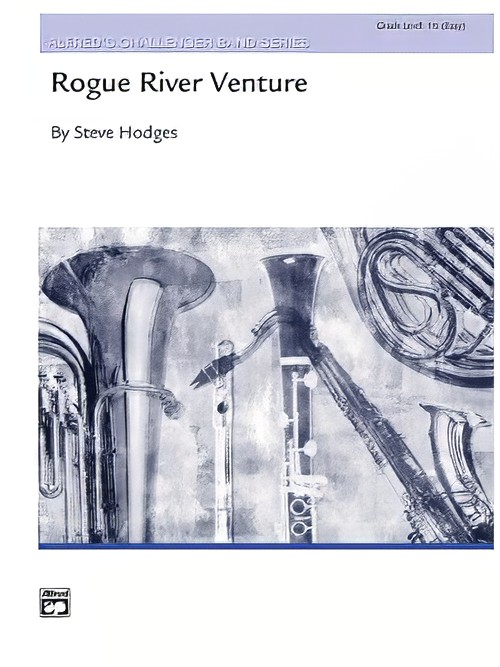 £41.50
£41.50Rogue River Venture (Concert Band - Score and Parts) - Hodges, Steve
Take a ride down the rapids with this exciting piece by Steve Hodges. Based on the Dorian mode, the melodies are shared by all sections of the band throughout the piece. The driving accompaniment of the first section is complemented well by the flowing triple-meter patterns of the middle section. From the opening measure to the dynamic conclusion, your young band will thoroughly enjoy this adventure! Duration: 2.00
Estimated dispatch 7-14 working days
-
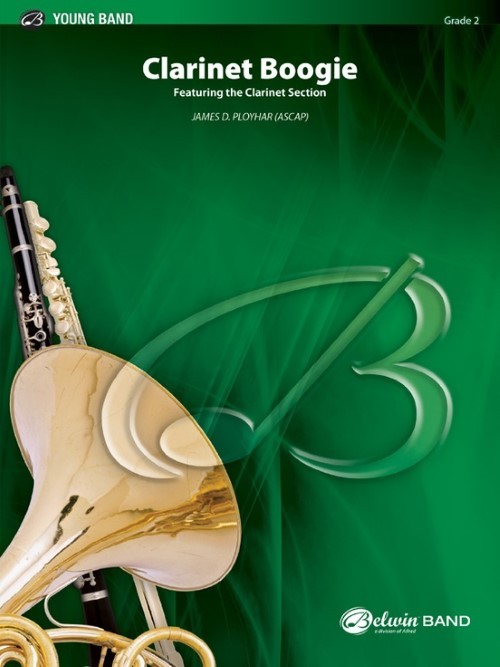 £58.50
£58.50Clarinet Boogie (Clarinet Section Feature with Concert Band - Score and Parts) - Ployhar, James D.
Let your clarinet section boogie on down into the solo spotlight. The sounds of big band jazz will then be heard, with your clarinets leading the way. This is a "feel good" concert selection that will also serve to motivate all your clarinet players.Duration: 3.15
Estimated dispatch 7-14 working days
-
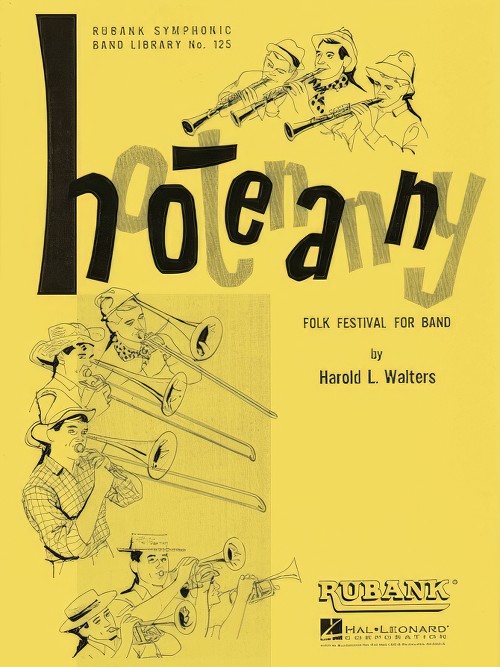 £60.99
£60.99Hootenanny (Folk Festival for Band) (Concert Band - Score and Parts) - Walters, Harold
Here is a whimsical look at some of America's favourite folk songs. The slow tempo in the beginning includes Frankie And Johnny, Lonesome Road, and John Henry. With a change to a faster tempo, various sections of the band are featured with Chicken Reel, Michael, Row The Boat, and Arkansas Traveler. I'm On My Way and Down By The Riverside finish out this exhuberant medley in rousing style.
Estimated dispatch 7-14 working days
-
 £29.95
£29.95Channel Islands Overture (Concert Band - Score and Parts) - Feldstein, Sandy
A dynamic allegro opening creates excitement from the first down beat of this excellent overture. The lyrical middle section, based on the opening theme, affords contrast and interest, leading the listener back to the opening theme. Exciting contemporary rhythms, driving percussion and angular melodies highlight this picturesque number.
Estimated dispatch 7-14 working days
-
 £19.80
£19.80Espirit (Concert Band - Score and Parts)
This composer has a knack of writing for young band that sets him apart from the others. He proves it again with this cute ``country'' tune. All sections have a chance to ``get down'' with the percussion doing their thing.
Estimated dispatch 7-14 working days
-
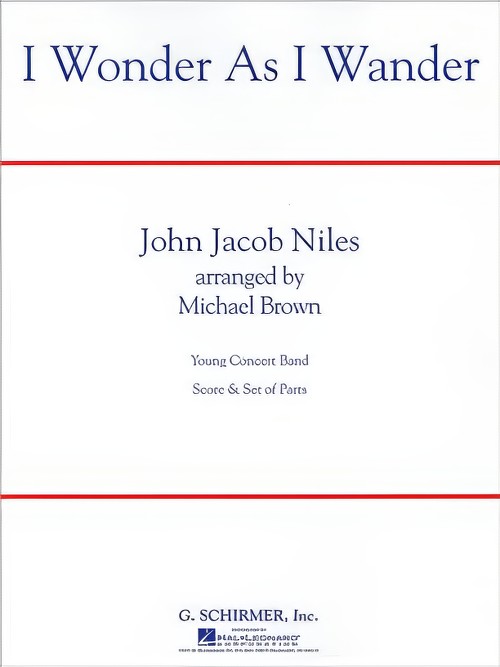 £47.50
£47.50I Wonder as I Wander (Concert Band - Score and Parts)
Taking this familiar holiday melody, Michael Brown has created an impressive arrangement for young players. Opening with the simple melody stated in flutes and vibes, the setting then blossoms with full and rich orchestrations, building brass lines and creative harmonies. After the emotional peak, the piece winds down to a quiet and effective ending. Nicely done. (Grade 2.5) (3:05) 03:00
Estimated dispatch 7-14 working days
-
£74.99
Night Disco (Concert Band - Score and Parts)
What could be better than a night out on the town? Luc Gistel obviously thought nothing! This entertaining composition has plenty of sounds that will remind young and old of many a night spent in the disco. After a tune that even John Travolta himself would have danced to, the mood quiets down for the obligatory slow song, during which new couples and old lovers can dance a little closer. Then things heat up again until the wee hours of the morning... 05:25
Estimated dispatch 7-14 working days
-
£89.99
Trumpets of Jericho Wind Band Set (Score & Parts)
This programmatic piece tells the biblical story of the fall of Jericho. The music paints a vivid picture of the procession of armed men and seven priests marching around the city for seven days, before blowing their trumpets and to the cheers of the crowds watching as the walls came tumbling down. A dazzling opening work for any concert. 0:03:50
Estimated dispatch 7-14 working days
-
£104.99
Variations on Shalom Chaverim Wind Band Set (Score & Parts)
Shalom Chaverim is an ancient Hebrew (farewell)song, which was originally sung at the end of a celebration or meeting. It was and is mostly sung as a round. Freely translated the words mean "Goodbye, friends, goodbye and see you again!". The varying moods at a parting have been captured very well by Andreas Schulte in his arrangement 'Variations on Shalom Chaverim'. The composer himself says about the song, 'Although the melody is in a minor key, the overall atmosphere in the song is positive. one wishes each other all the best. Saying goodbye, however, also hurts. When you slow down the pace of the melody and add 'blue notes' in the harmonies, this can be sensed immediately.' Schulte refers here to the first variation. The second variation is very intense with possibly even deeper-felt emotions. 'Variations on Shalom Chaverim' ends on a cheerful and positive note, in fast tempo, and with oriental elements in the melody: 'L'hitra'ot, Shalom' (See you again, and farewell!). 05:00
Estimated dispatch 7-14 working days
